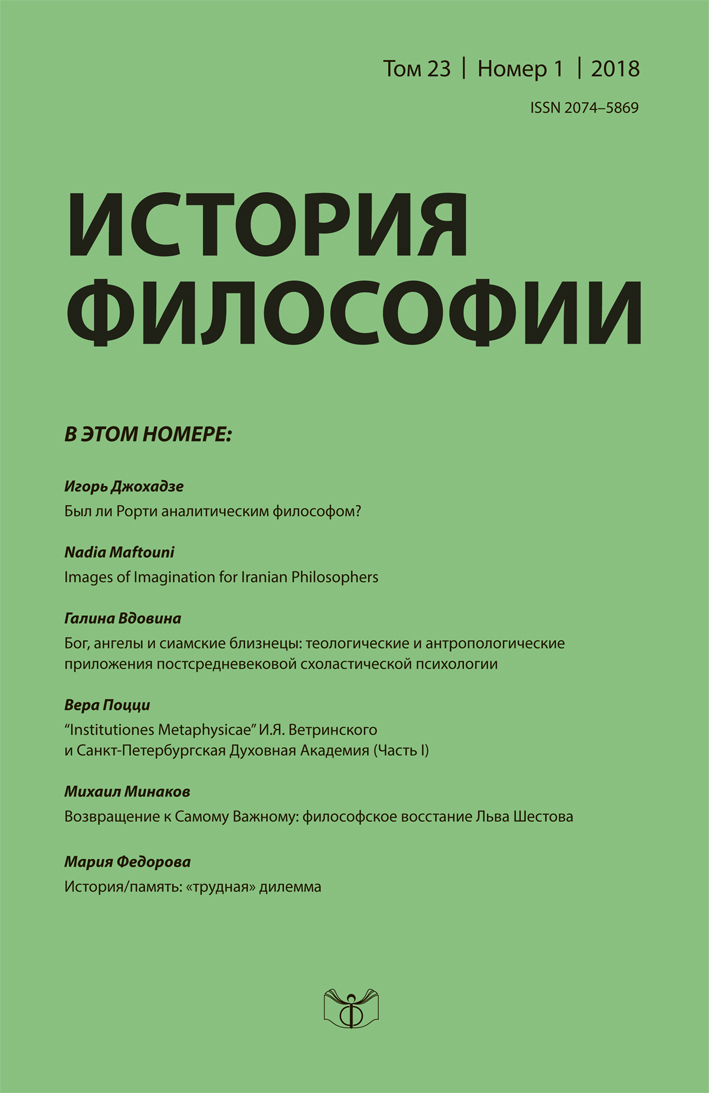God, Angels and Conjoined Twins: Theological and Anthropological Applications of Post-Medieval Scholastic Psychology
Keywords:
post-medieval scholasticism, physical and intentional life, God, angels, conjoined twins, psychology of scholasticismAbstract
The article discusses the post-medieval concepts of physical and intentional life, taken in their
theological and anthropological applications. First, these concepts are applied to divine beings and
checked for compliance with fundamental principles of rational theology concerning the perfect
actuality of God. Secondly, they are applied to immaterial created substances – angels and checked
for compliance with the general criteria of the living, adopted in late scholastic tradition, i.e. that of
the immanence of vital acts and of their non-belonging to the natural status. Thirdly, these concepts
are applied to the phenomenon of conjoined twins and provide a way to resolve the issue which was
unquestionably important in theological perspective: how many souls and therefore how many lives
are present in conjoined bodies and, hence, how many baptisms you need, so that these souls could
be saved. The consideration of these applications also allows to draw some conclusions concerning
the method of post-medieval scholastic philosophy.

